On June 19, in the courtyard of Dom omladine in Pancevo, the Project for Household Waste Separation "O-DVA-JA-MO" was promoted for the second time. Children from several kindergartens and primary and secondary schools in Pancevo who participated in the promotion, devised their own performances with their teachers.
Separation of waste in households for Pancevo will mean the establishment of a waste management system that includes separate collection and transport of municipal waste, which will be deposited at the landfill, and packaging that will be sent for recycling.
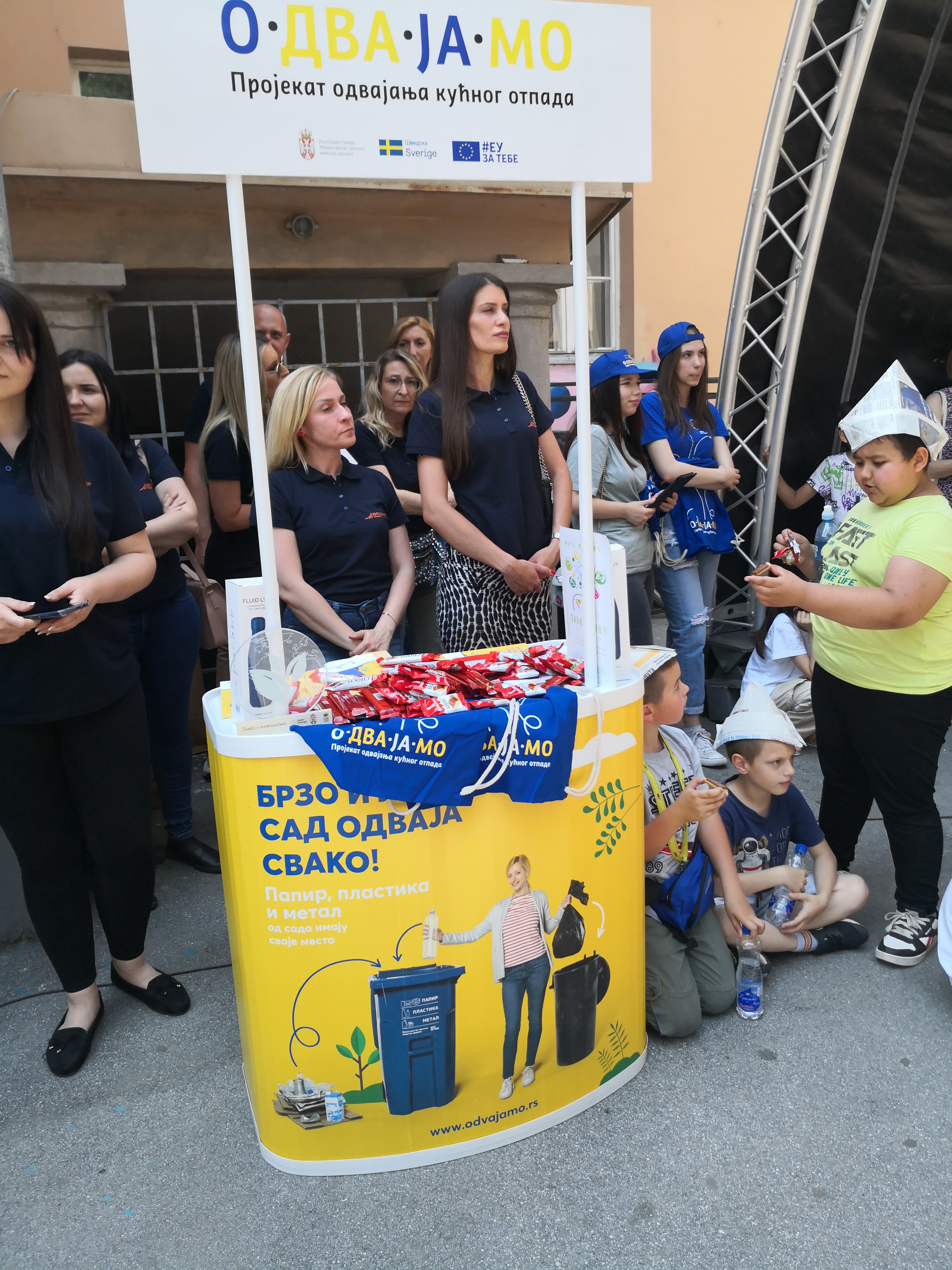
Preschoolers from the "Dečja radost" preschool institution and pupils from the "Branko Radičević" and "Jovan Jovanović Zmaj" primary schools, the "Mara Mandić" primary and secondary schools, and the "Jovan Bandur" music school presented their creative skills at the exhibition and on stage. The audience was entertained by the songs of the "Vocal Kids" Choir, "recycled" hairstyles and fashion shows, dance routines, competitions and an exhibition of works from recyclable materials. The promotion in Pančevo was attended by representatives of the Ministry of Environmental Protection of the Republic of Serbia, Mr John Glazebrook, Program Manager of the EISP2 project, Mr Antoine Avignon, Program Manager for the environment and climate change at the EU Delegation in Serbia, Mrs Zdenka Miljković from the Secretariat for Environmental Protection of the City of Pancevo and Mišo Marković, director of PUC "Higijena" Pančevo.
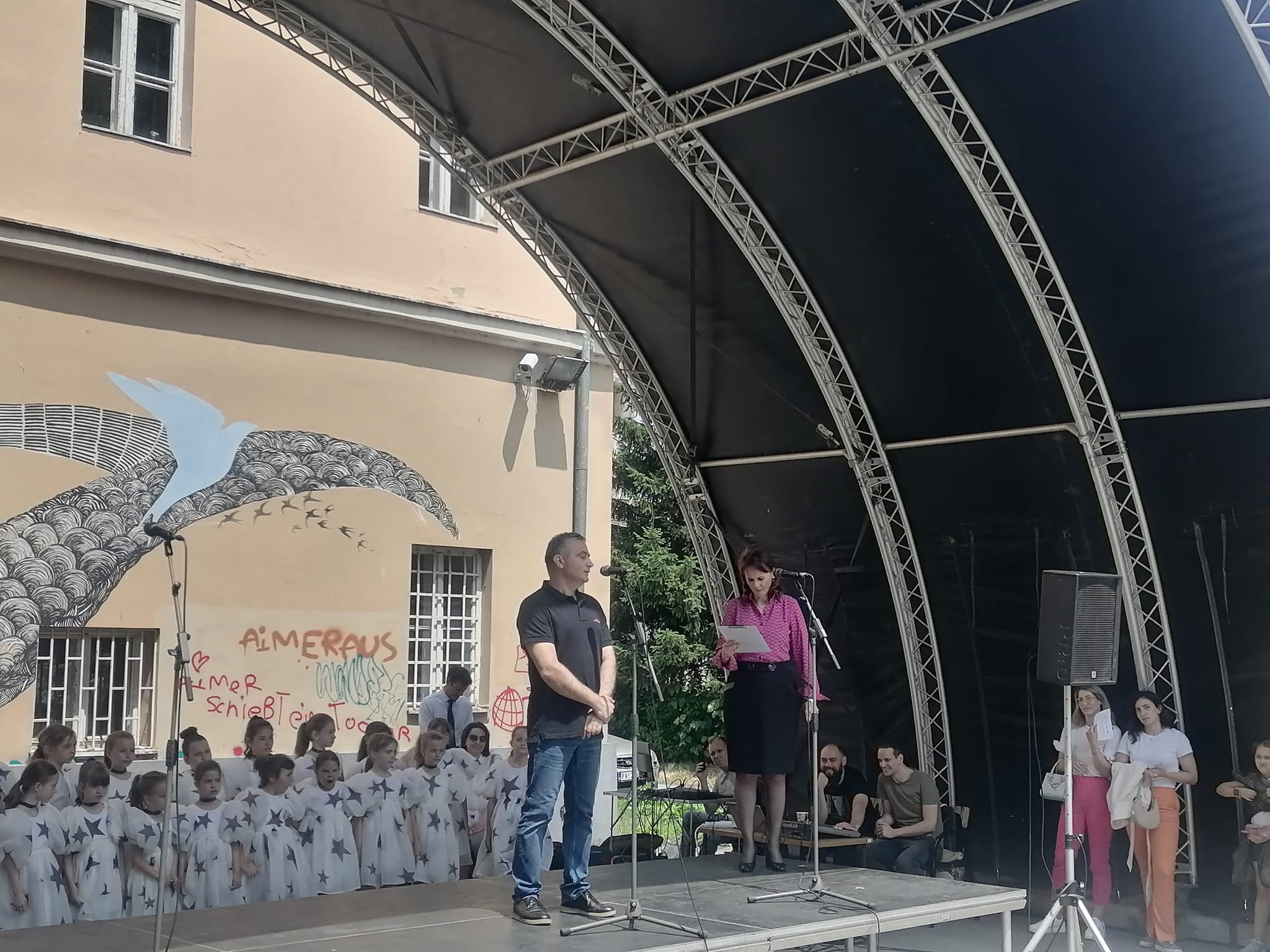
The Project for Household Waste Separation is implemented in Pančevo as one of the four waste management regions in Serbia, where primary waste separation is organized within IPA 2017 - instruments for pre-accession assistance of the European Commission and EISP2 (Program for supporting the development of policies and human capacities for development of environmental protection in Serbia), which was supported by the Government of Sweden.
Through the project, the procurement of trucks for waste collection and 5077 blue bins and 93 blue containers for collecting recyclable material - paper, plastic and metal was realized. Part of the blue bins for the "dry" fraction (packaging waste) has been distributed complete with the green bins for "wet", mixed household waste, and the employees of the PUC "Higijena" will empty them using new garbage trucks. Households that did not receive accompanying green bins for mixed, "wet" (household) waste along with the blue bins will receive them later and will be informed about it.
John Glazebrook, Program Manager of the EISP2 project, pointed out that the contribution of the Policy and Human Capacity Development Support Program for the development of environmental protection in Serbia is reflected in technical support to the City of Pančevo and the Ministry of Environmental Protection in activities from that domain.
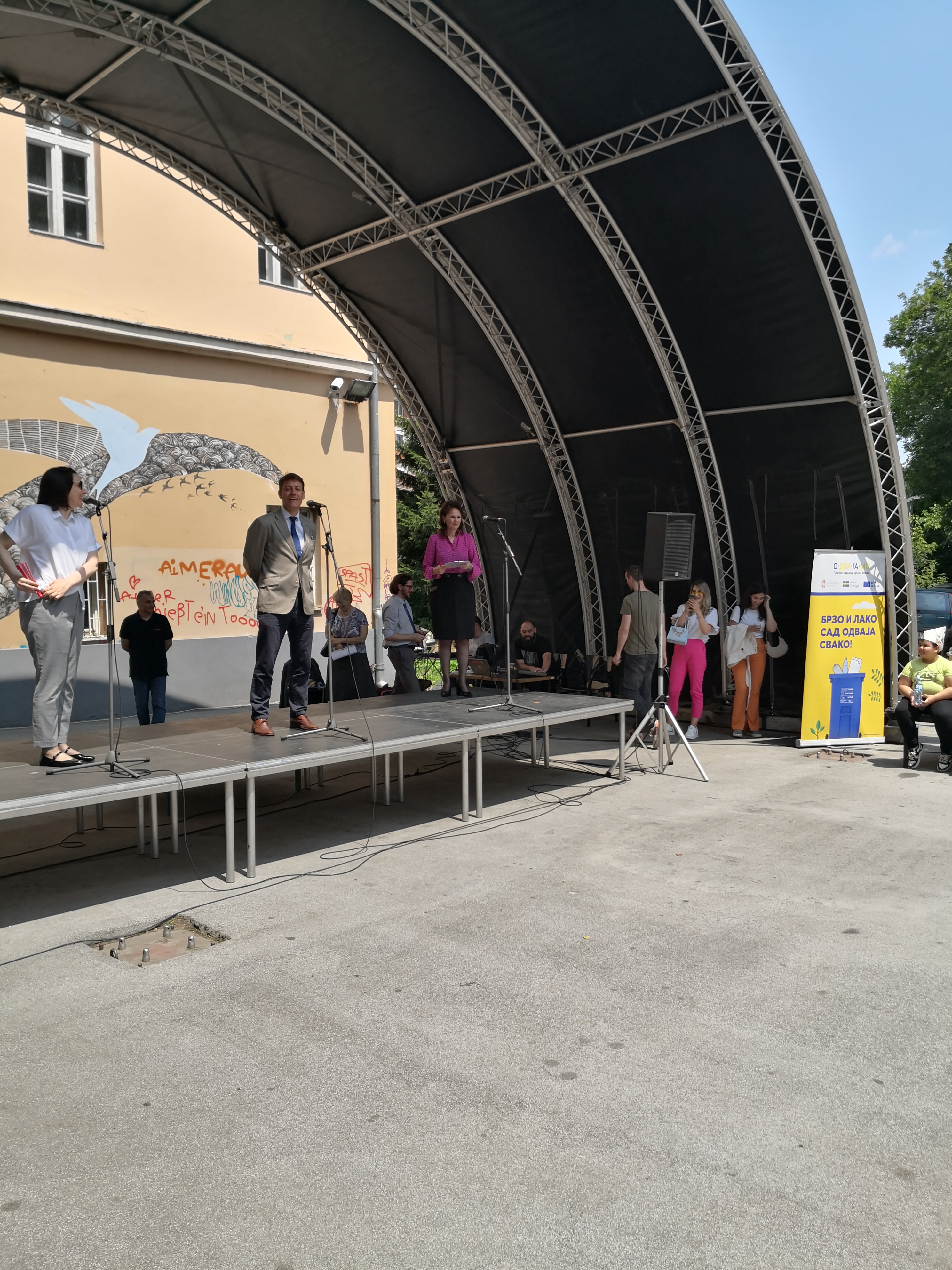
"During the month of May, more than 760 tons of secondary raw materials, which are sent for recycling, were collected in a total of seventeen cities that are part of this project." That number is increasing every month because the citizens of Serbia are making more and more efforts. The bottom line is to increase recycling and reduce costs, which is the current task of the population, and the children after us will prove to what extent this is sustainable."
Antoine Avignon, Program Manager for the environment and climate change of the EU Delegation in Serbia, singled out the change that this project brings - it is reflected in the reduction of the amount of packaging waste in landfills, and the promotion of the economy and the preservation of nature.
"This project is very important for the European Union because the practice highlighted by it is understood in all its cities. We are satisfied that it is being transferred to Pančevo and other parts of Serbia, as well as how the project is progressing, and what we strive for is the sorting of waste in every household."
Zdenka Miljković, Secretary of the Secretariat for Environmental Protection of the City Administration of Pančevo, described the success of the project through the improvement of conditions for municipal waste management, in accordance with EU standards and Serbian legislation.
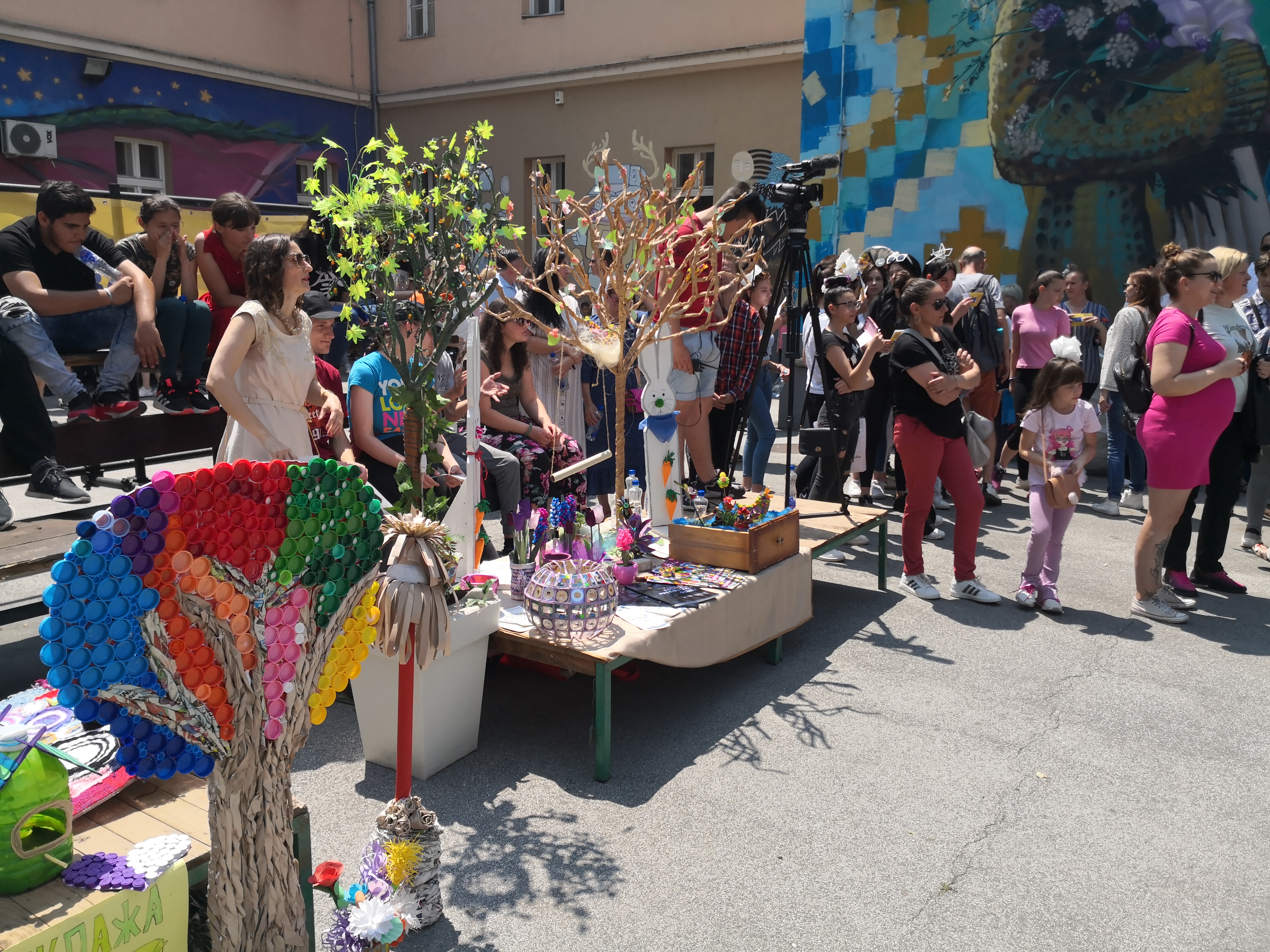
"By developing and implementing the infrastructure for primary waste separation, we improve the prerequisites for environmental protection. Together with the Ministry of Environmental Protection and the Kingdom of Sweden, we are entering into a new project of introducing green waste treatment in five regions. It is about composting in households, as well as separate collection and composting of green waste in cities and municipalities. With this and the following projects, we all continue to protect our environment together."
Mišo Marković, director of PUK "Higijena" Pancevo, said that the plan is to cover the whole of Pancevo with the same waste management system, through a series of upcoming projects.
"The goal of this project is to move from the current separation rate of packaging waste sent for recycling, which is two percent in Serbia, to fifteen percent in the next two years, considering that the result in the EU is 48%. In this way, we contribute to recycling and saving space in landfills, as well as to the reduction of the carbon footprint in Serbia - by preventing the release of harmful gases, with the greenhouse effect. We, as a public companz also include the youngest fellow citizens in our educational efforts in order to change social habits related to waste disposal."
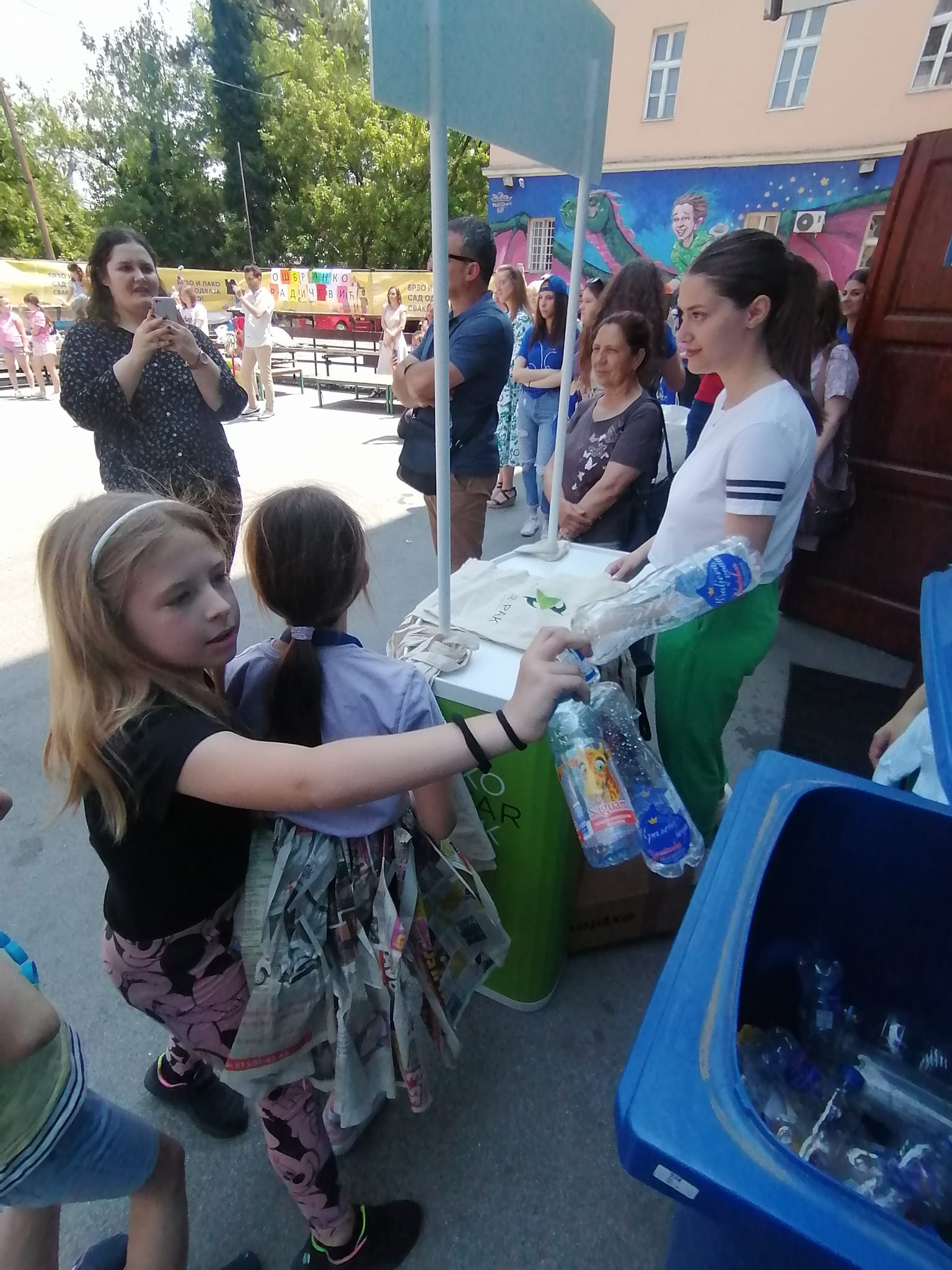
The "O-DVA-JA-MO" project is implemented in 17 municipalities in Serbia with the support of the Ministry of Environmental Protection of the Republic of Serbia, the European Union and the Embassy of Sweden. The goal of the project is to recycle part of the waste generated in households, in order to reduce the amount that ends up in landfills, and increase the recycling rate in these municipalities to 15%.
The Waste Management Program in Serbia 2022-2031, adopted by the Government of Serbia as part of EU accession, aims to improve the municipal waste management system through an increased rate of recycling, reduced disposal of biodegradable waste in landfills and reduced disposal of waste in unhygienic landfills.
Now
everyone can separate waste fast and easily!